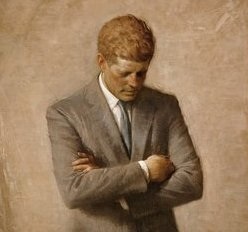 The Louisiana Purchase and the Apollo Program were two major U.S. policies, a century-and-a-half apart, which eliminated fierce competitors in our quest for the freedom to expand our horizons. They provided voyages into new frontiers with the promise of prosperity. In one case, it worked. In the other, it looked really good until recently.
The Louisiana Purchase and the Apollo Program were two major U.S. policies, a century-and-a-half apart, which eliminated fierce competitors in our quest for the freedom to expand our horizons. They provided voyages into new frontiers with the promise of prosperity. In one case, it worked. In the other, it looked really good until recently.
Shortly after the formation of the United States, France threatened the new nation it had aided during the American Revolution by controlling land known as French Louisiana. Lucky for us, France wasn’t feeling so well. Bogged down by war problems on the home front, the Frenchies were willing to unload more than 800,000 square miles of territory for a price. President Thomas Jefferson sent a delegation to Paris in 1802 and Napoleon made the offer of $15 million after his failure to build an empire in North America.
Congress approved Jefferson’s Louisiana Purchase in 1803 to double the size of the U.S., leading to the Lewis and Clark expedition and the migration west. New settlements quickly developed and the rest is history, thanks to a brilliant decision by Jefferson to knock off a competitive nation that surely would have caused conflict within boundaries that stretch from Louisiana to what are now known as Wyoming and Colorado to the west and as far north as today’s Minnesota.
The United States faced more fierce competition beginning in the 1950s in what would become a race to control the outer territory of space. The Soviet Union caught the entire world off guard when it launched the first artificial satellite, Sputnik, which began its orbit of Earth in 1957. In response to the menace of the heavens, President Dwight D. Eisenhower created NASA, but the Soviets poked us in the eye once more by launching Yuri Gagarin into orbit in April 1961 as the first human in outer space.
So President John F. Kennedy made his astonishing and historic commitment before Congress on May 25, 1961, to land a man on the moon and bring him safely back to Earth by the end of the decade. It was the one way we could beat the Russians in the exploration of space because of certain technological advantages we had, Kennedy was told by advisors. Besides, we could make the moon our territory before the Russians got up there and fired missiles at us.
It was slow going through the Mercury program, but by the middle of the Gemini program, the Soviets started to fall behind in the space race. By the time the Apollo Program arrived, they were no match and became a non-player as we sent 12 men to the surface of the moon. Americans were willing to fork over about $200 billion in today’s dollars in costs. Something happened after that. Maybe we just became too fat and too lazy.
 The Louisiana Purchase and the Lewis and Clark expedition led to amazing new geographical discoveries and growth throughout the expanded U.S. Likewise, the U.S. space program brought extraordinary developments in computers and technology. We made some advances in space exploration with the Space Shuttle, but now the final frontier and settlements on the moon apparently belong to . . . China. And this time we don’t have the will or the money to face the competition.
The Louisiana Purchase and the Lewis and Clark expedition led to amazing new geographical discoveries and growth throughout the expanded U.S. Likewise, the U.S. space program brought extraordinary developments in computers and technology. We made some advances in space exploration with the Space Shuttle, but now the final frontier and settlements on the moon apparently belong to . . . China. And this time we don’t have the will or the money to face the competition.
